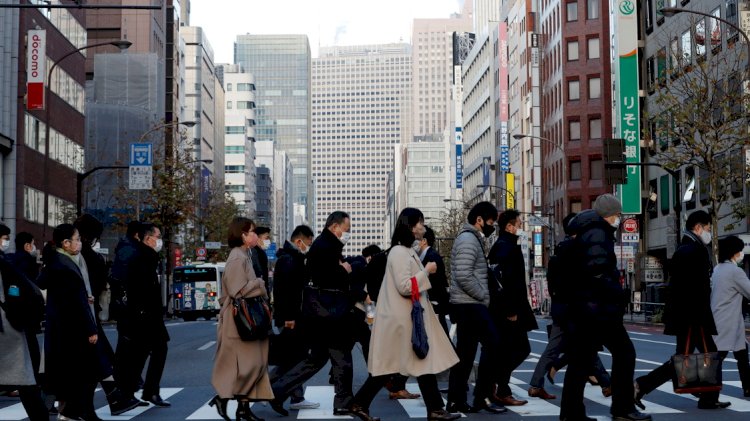Japan’s economy shrinks 4.8% in 2020 due to Covid
The growth figures come as, for the first time since 1990, Japan's Nikkei index briefly reached 30,000. The third-largest economy in the world experienced its worst quarterly post-war contraction between April and June, as domestic demand and exports were affected by the global pandemic.

In the fourth quarter of 2020, Japan's economy surged, but it wasn't enough to keep the nation from negative growth for the year. Between October and December, the economy beat forecasts to rise by 3 percent compared to the same period in 2019. Yet growth was slightly slower than in the previous quarter, when the economy grew by 5.3%. Over the full year, Japan's economy shrank 4.8 percent, its first contraction since 2009. The growth figures come as, for the first time since 1990, Japan's Nikkei index briefly reached 30,000. The third-largest economy in the world experienced its worst quarterly post-war contraction between April and June, as domestic demand and exports were affected by the global pandemic.
But in the second half of the year, consumption and exports, which are both main drivers of the Japanese economy, have fuelled a rebound. In the final quarter of 2020, private consumption, which makes up more than half of the economy, grew by 2.2 percent, slowing from the 5.1 percent growth in the previous quarter.In the third and fourth quarters, stronger economic growth globally also helped Japanese companies export more of their goods overseas. Annualized growth was 12.7 percent, which means the growth of the quarter would be sustained for the whole year, indicating Japan may be on track for a good and fast recovery.
But growth is still fragile, and restrictions aimed at limiting another Covid-19 wave could hamper it. Shinkin Central Bank Research senior economist Takumi Tsunoda expects the recovery to fail because Japan lags behind western economies in the delivery of vaccines. "The conditions are such that Japan will not be able to avoid negative growth in the first quarter," he told Reuters.There is a strong probability that this year there will be a repeated cycle of spreading and containing coronavirus infections, which means that demand is not likely to rebound at the anticipated rate. In December, the government launched another stimulus round aimed at dragging the second largest economy in the world out of its recession.The package of 73.6tr yen ($708bn; £530bn) brought Japan's overall stimulus spending to around $3tr.




























